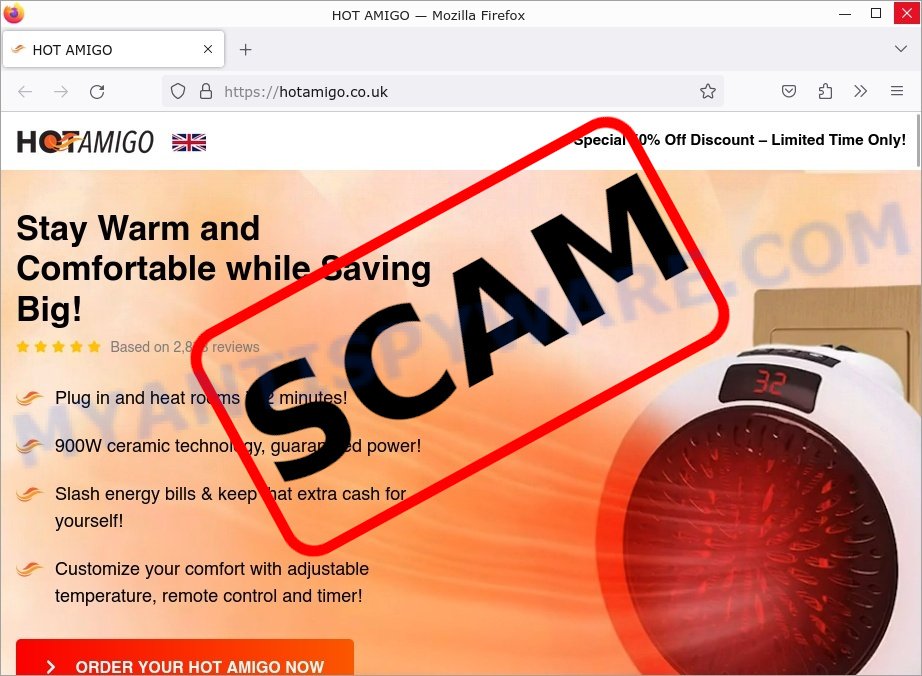Amazon, Facebook, and other social media platforms are currently flooded with advertisements for Toasty Heater, a portable heater brand. These ads make bold claims about the product’s efficiency, including testimonials like, ‘I don’t even need to use my home’s central heating anymore! I just plug this heater into the wall, and it makes my room super cozy‘. Despite these enticing promises, a growing number of buyers report that the Toasty Heater fails to meet expectations.
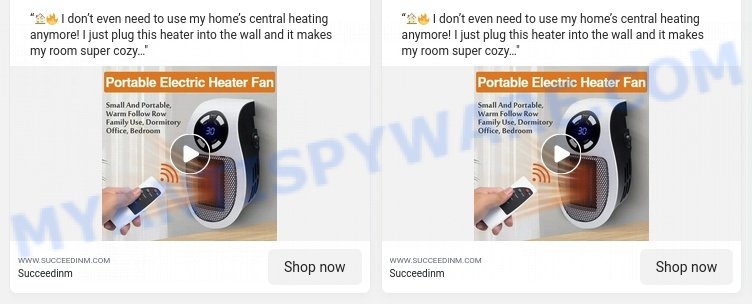
This article aims to shed light on the realities of the Toasty Heater scam, explaining its workings and offering guidance to help consumers avoid falling victim to such misleading marketing tactics.”
Table of Contents
🚨 Toasty Heater Scam Alert
The Toasty Heater scam is a textbook case of fraudulent marketing, exploiting the demand for efficient and affordable heating solutions. It’s part of a larger trend where low-quality heaters are rebranded and sold under various names like Cosmo Heater, EcoHeat, Warmool Heater, Hot Amigo, Life Heater, and more, each sharing the same misleading promises and disappointing results.
📢 Promotion Tactics
These heaters are aggressively marketed across social media platforms like Facebook, TikTok, and Instagram, utilizing their broad user base to amplify false claims. They are sometimes listed on reputable marketplaces like Amazon, which can mislead consumers about their legitimacy. The ads are characterized by bold, exaggerated claims about the heaters’ performance and efficiency.
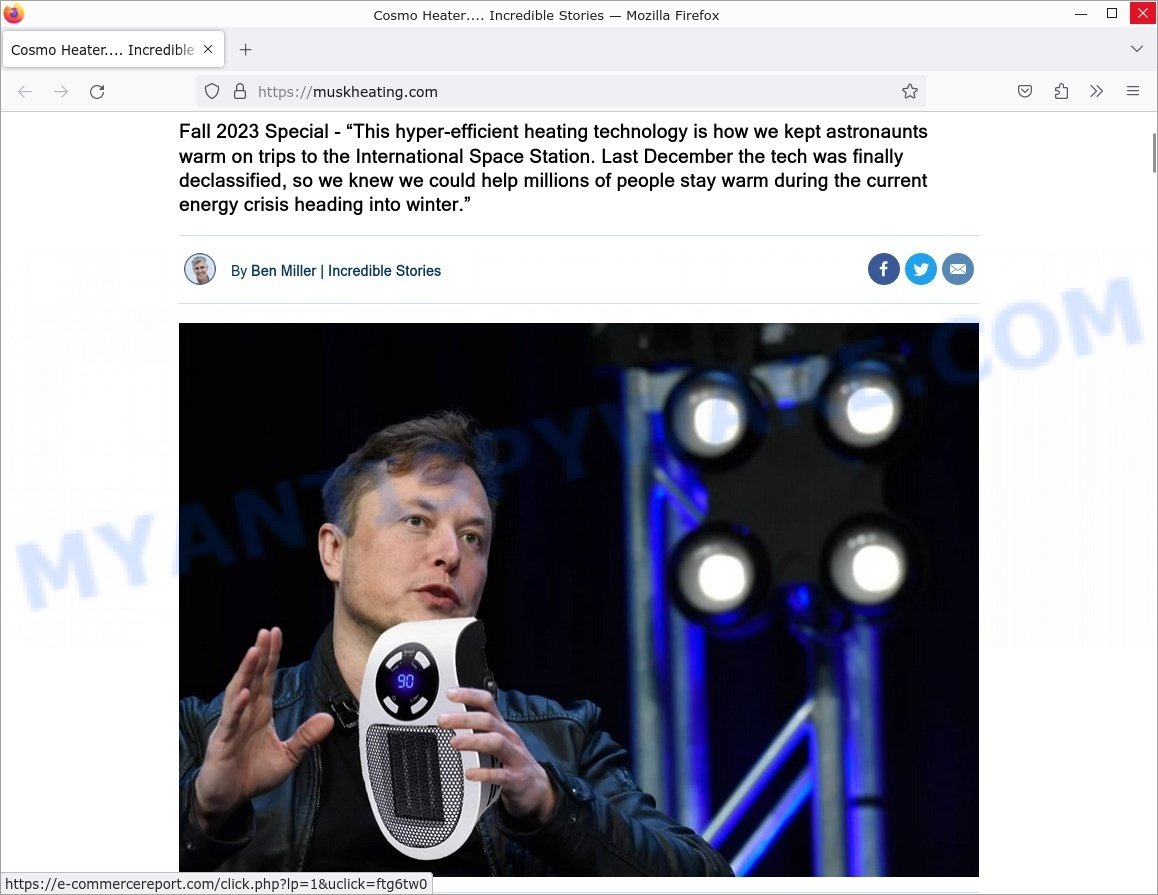
💸 Reality of the Product
In truth, the Toasty Heater is a mere $3 device from Chinese bulk wholesale markets like Alibaba. These are generic, mass-produced items that fall drastically short of fulfilling their advertised capabilities. The stark contrast between their promised and actual performance is a major red flag.
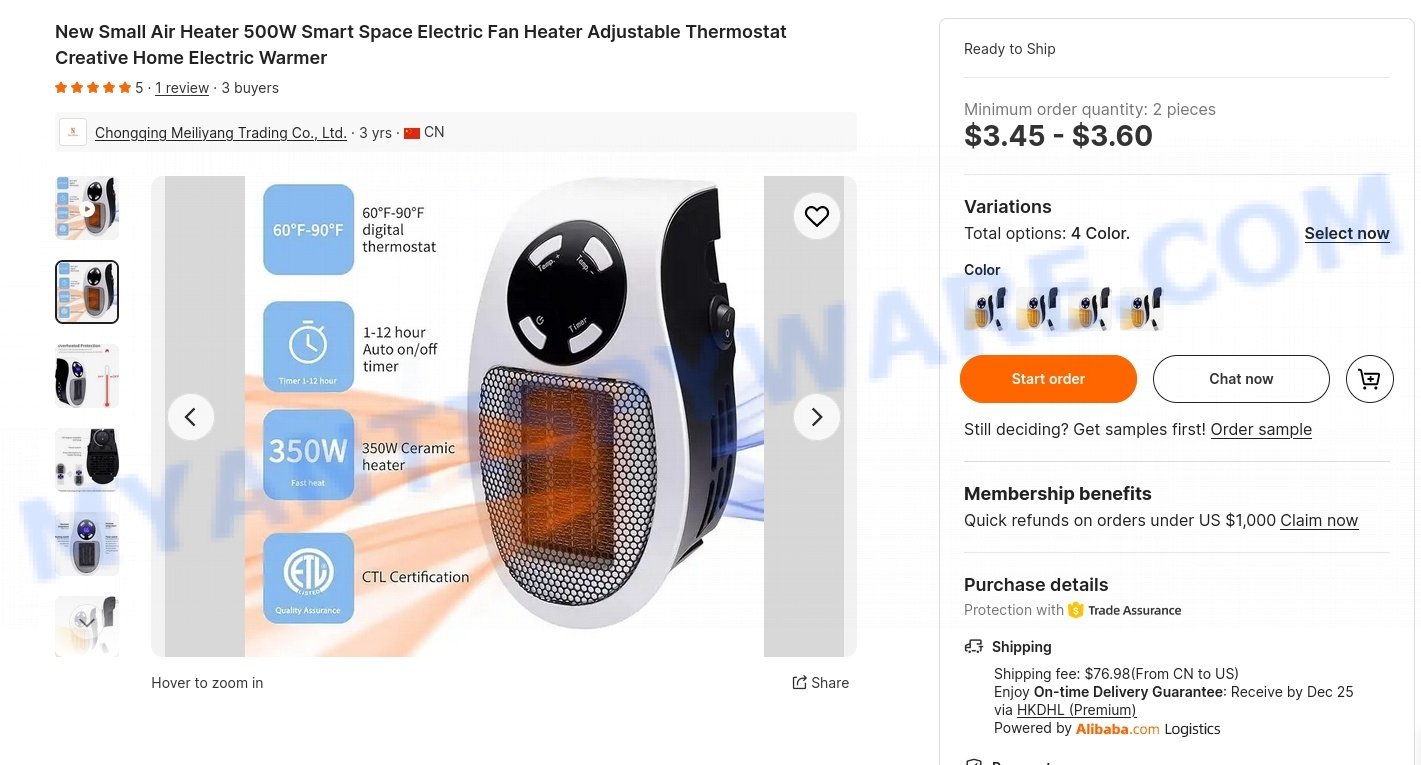
🪝 Bait-and-Switch Tactic
At the heart of this scam is the classic bait-and-switch approach. The scammers lure customers with high-flying ads, pushing for impulsive purchases. After the sale, the reality of the product’s inadequacy becomes evident, but the scammers are already counting their profits, continually spawning new scam sites and fake reviews to keep the cycle going.
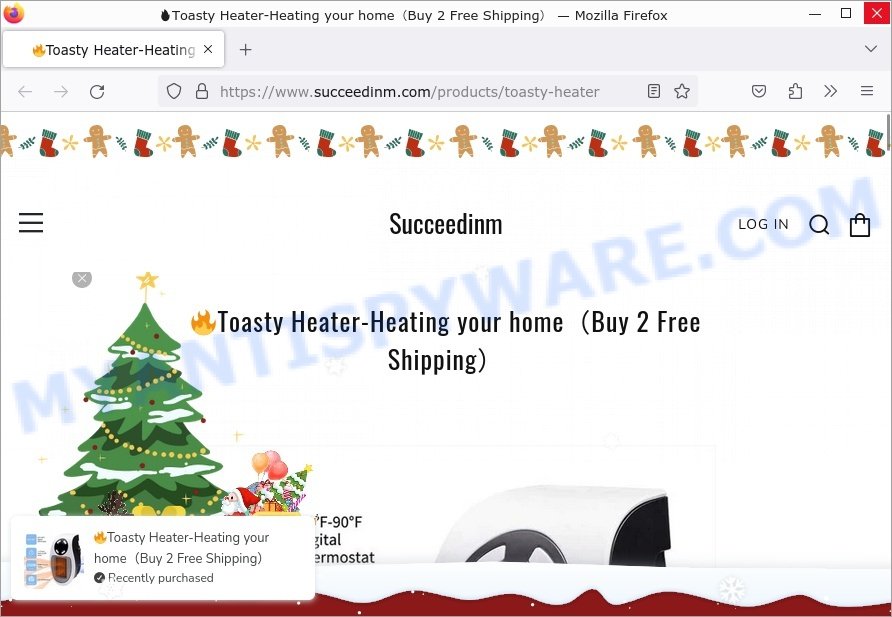
🚫 Refund and Response Issues
A cornerstone of this scheme is the absolute refusal to issue refunds or respond to customer complaints. Scammers operate anonymously, providing no legitimate contact information or addresses, leaving customers stranded post-purchase.
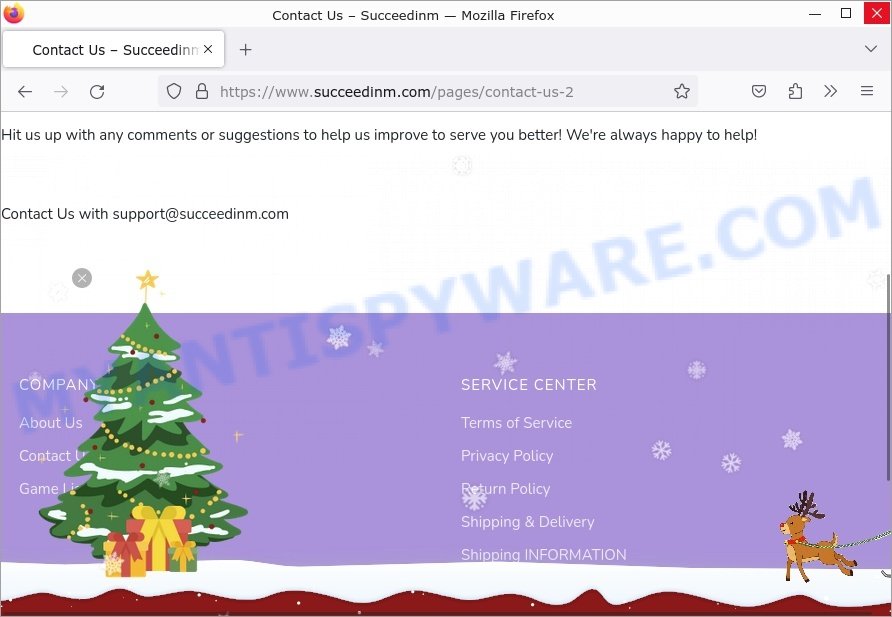
In essence, the Toasty Heater scam is a calculated exploitation, marketing inferior heating devices with false promises. It’s built on deceptive advertising and a blatant disregard for customer satisfaction. Consumers are advised to exercise caution and conduct thorough research before committing to such purchases.
🕵️♂️ How the Toasty Heater Scam Works
The scam starts with the purchase of inexpensive heaters from Chinese wholesale markets, specifically platforms like Alibaba. These heaters are basic and low-cost, often around $3 each, but they are later marketed as high-quality products. The low purchase price allows scammers to make a significant profit when selling these heaters at much higher prices.
Creating False Advertisements on Social Media
The scam gains momentum with the launch of misleading advertisements on social media platforms:

- Unrealistic Heating Claims: The ads claim the heater can warm a room completely in just 2 minutes, a promise far beyond the heater’s actual capability.
- Exaggerated Energy Efficiency: They advertise that using these heaters can cut energy bills by up to 30%, which is not true.
- Manufactured Reviews: The ads often include fake 5-star reviews to suggest widespread customer satisfaction.
- Pressure Tactics: Ads use phrases like “50% Off for a Limited Time” or “Only a Few Left” to create a sense of urgency and speed up the decision-making process.
- Deceptive Images: The ads show images of people comfortably warm in large rooms, falsely suggesting the heater’s effectiveness.
Misleading Sales Pages
Clicking on an ad leads consumers to sales pages designed to further deceive:
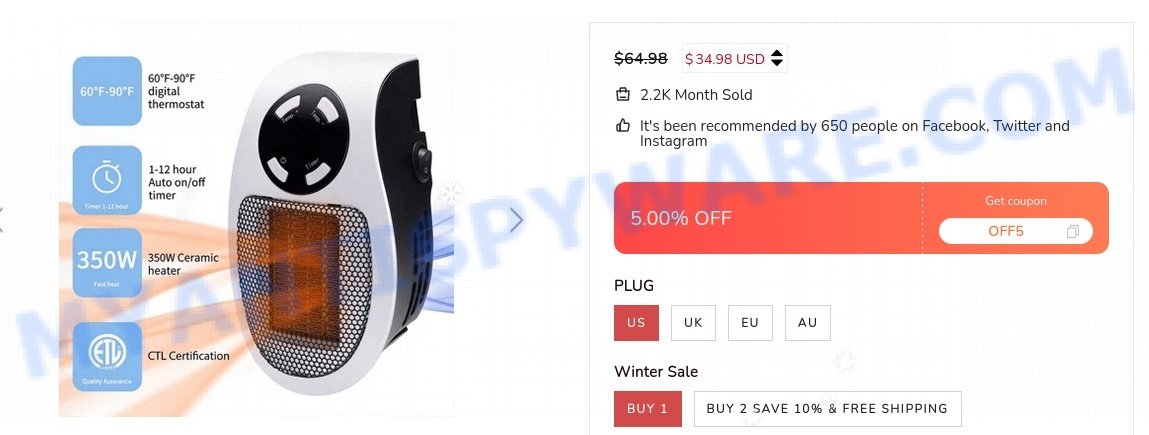
- False Discounts and Stock Alerts: These pages claim significant, time-limited discounts and limited stock to push quick sales.
- Promotions for Buying More: They encourage the purchase of multiple heaters with deals like “Buy 2, Get 1 Free”.
- Hidden Negative Reviews: These pages often don’t show honest customer feedback, especially negative reviews.
- Repeat of False Claims: The same exaggerated claims about the product’s efficiency and safety are reiterated.
- No Company Information: There is a notable absence of any real company contact information or address.
Avoiding Refunds and Customer Complaints
After purchase, customers face numerous obstacles:
- Non-Responsive Customer Support: Efforts to contact customer service usually lead nowhere, with emails unanswered or calls disconnected.
- Refund Denial: Customers are often falsely told that they are outside a “30-day refund window”.
- Blocking Chargebacks: The company uses incorrect shipping information to challenge disputes with credit card companies.
- Exchanges Instead of Refunds: They offer to replace the heater with another unit instead of returning the money.
- No Contact Points: There is no effective way to reach the company or its representatives after the sale.
This scam is carefully orchestrated to mislead consumers from the initial advertising stage to the point of sale and beyond, with strategies focused on maximizing sales and minimizing accountability.
🤔 Why Such Scams Are Possible
Quick Profit Motive
Scammers are in it for the quick buck. They don’t care about long-term consequences because they usually disappear before anyone catches on.
Limited Oversight on Ad Platforms
While social media websites have policies against scams, the sheer volume of ads makes it challenging to police every single one. Scammers take advantage of this gap to promote their fake products.
🧠 Human Psychology
Scammers know that people are looking for quick, easy solutions to their problems. The desire for an immediate fix can sometimes cloud judgment, making individuals more susceptible to scams.
⚖️ Lack of Legal Consequences
In many cases, these scammers operate across international borders, making legal pursuit complicated and unlikely. This reduces the risk for scammers, encouraging such fraudulent activities.
👤 Anonymity on the Internet
It’s easy for scammers to hide their identity online. A fake name, a throwaway email address, and they’re in business. This makes it hard to trace and take down these fraudulent schemes.
💡 Beware of Similar Devices
It’s not just the Toasty Heater Device you need to watch out for; there are other products claiming extraordinary benefits that often turn out to be scams. Here are some similar products to be wary of:
Cosmo Heater
This product is advertised as a revolutionary heating device with exceptional capabilities, sometimes falsely associated with high-profile individuals like Elon Musk to gain credibility. Be cautious of any device that leverages celebrity names without verifiable evidence of their involvement or endorsement.
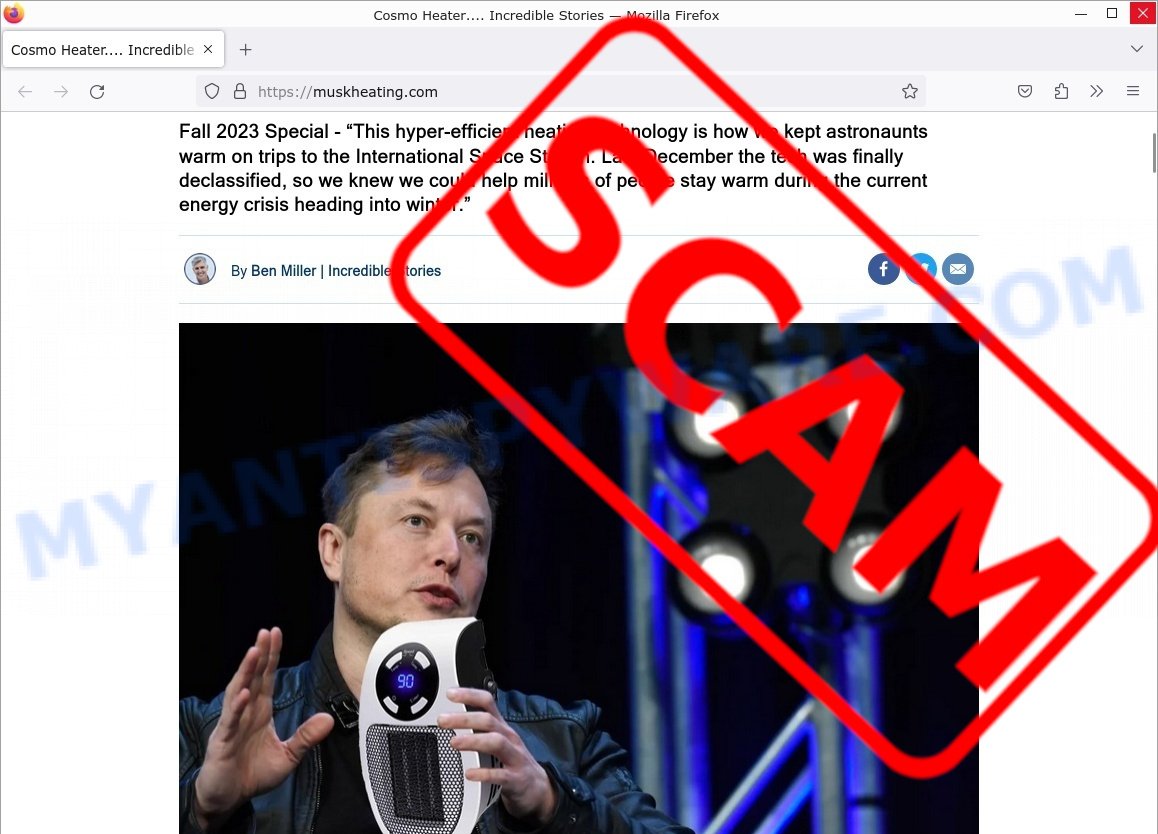
StopWatt
This device claims to reduce your electricity bill by optimizing your energy usage. It often comes with a money-back guarantee to appear more trustworthy. But consumers have reported either no change or an increase in their energy bills after using it.
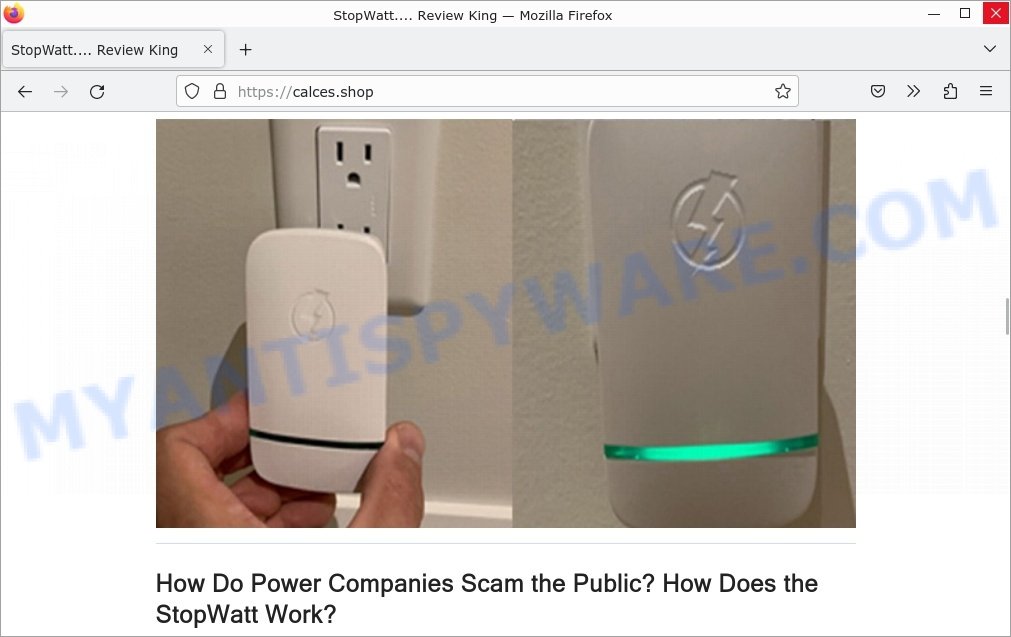
Electromagnetic Antifreeze Snow Removal
This device claims to use “advanced electromagnetic technology” to remove snow and ice effortlessly. Like the AEXZR, it employs scientific jargon to confuse and lure potential buyers, but there’s no substantial evidence to support its claims.
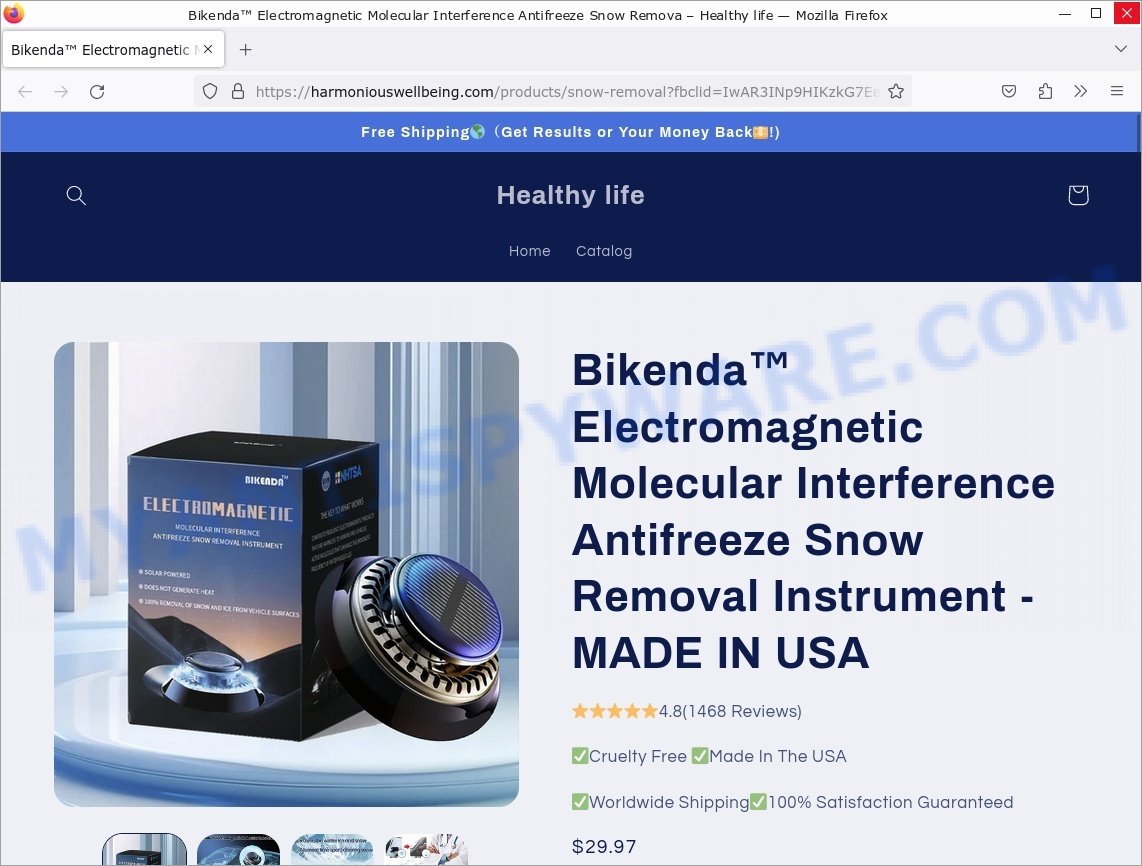
EcoHeat Portable Heater
Similar to other tech scams, this portable heater could be marketed with unrealistic promises such as extreme energy efficiency or exceptionally rapid heating capabilities. Always verify such claims through independent reviews and credible sources.
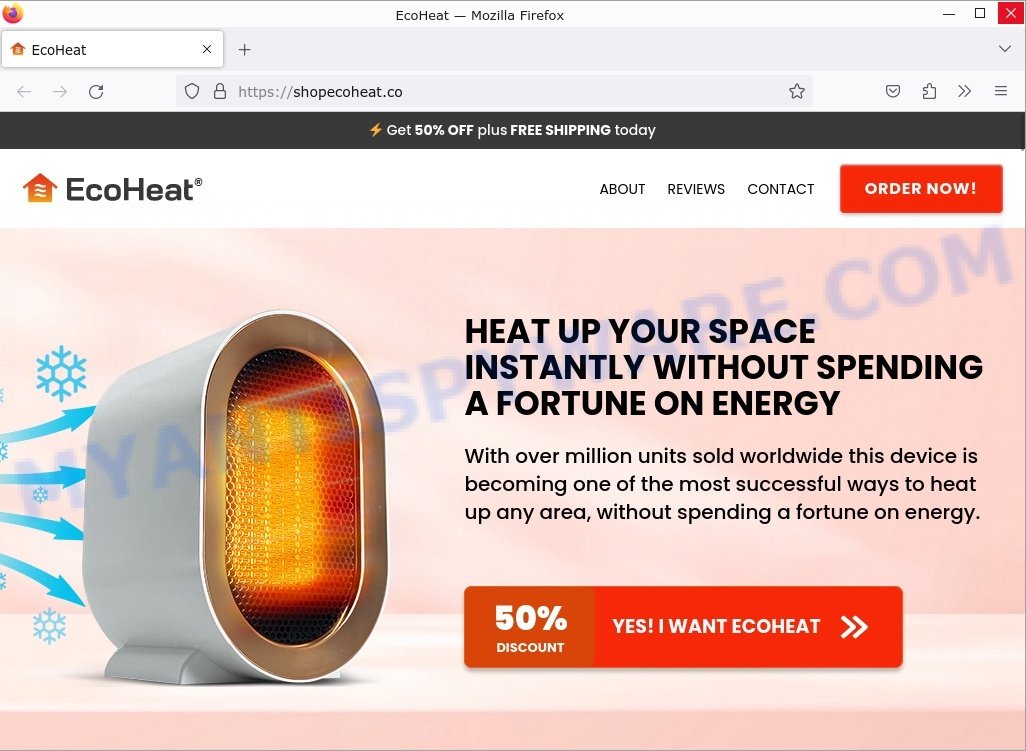
MileMax Fuel Saver
This product promises to drastically improve your car’s fuel efficiency using a “revolutionary chip”. It boasts a hassle-free installation and quick results, but there’s no verified data to back these claims. Plus, messing with your vehicle’s electronics can be risky and void your warranty.
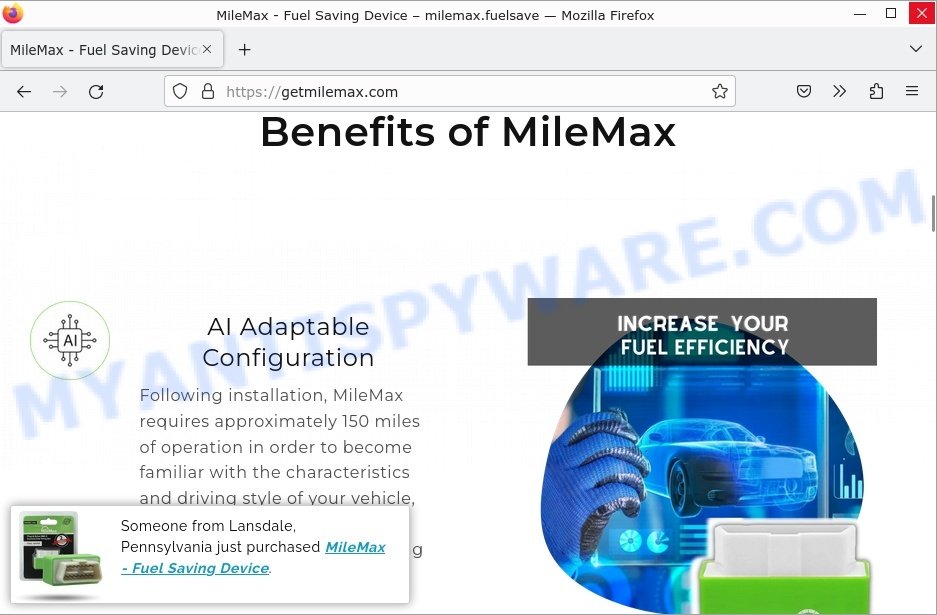
These products share common red flags:
🚩 False Science: They use scientific-sounding language that lacks credible backing.
🚩 Fake Reviews: Customer testimonials often seem scripted and too good to be true.
🚩 Pressure Tactics: Limited-time offers and countdown timers urge quick purchasing decisions.
🚩 Unclear Contact Information: They provide an email or an address often linked to fraudulent activities.
😱 What to Do If Scammed
If you find yourself ensnared by the Toasty Heater Scam, immediate action is crucial. Here’s what you should consider doing:
🛑 Stop Further Transactions
The first step is to halt any additional transactions that might be in process. Contact your bank or credit card provider and inform them that you’ve fallen victim to a scam. They can help by blocking the card or reversing any unauthorized transactions.
📞 Report the Fraud
File a report with your local police and provide all the available evidence, such as screenshots, emails, and website URLs. Additionally, report the scam to online portals like the Better Business Bureau (BBB) at www.bbb.org or the Federal Trade Commission (FTC) at reportfraud.ftc.gov. If you’re in another country, reach out to your national consumer protection agency.
💻 Take Screenshots
Before the scam website gets taken down or changes, make sure to capture screenshots of your transactions and communications. These can serve as evidence if you decide to pursue legal action.
⚖️ Consult Legal Advice
Speak to a legal advisor about your situation. While pursuing legal action may be time-consuming and costly, it could be a possible avenue for recovering your lost money.
📢 Share Your Experience
Use social media platforms to share your experience and warn others about the scam. Your story could prevent someone else from falling victim to the same or similar scams.
Conclusion
In summary, the Toasty Heater scam is a significant issue where social media ads make false promises and use fake reviews to sell the product. The sales pages add to the deception with misleading countdowns and claims of limited stock to make people buy quickly.
Unfortunately, the heaters don’t work as well as advertised, and the companies behind them often ignore requests for refunds and complaints. It’s important to be careful where you buy from and check the seller’s reputation.
If you’ve already bought one of these heaters, you might still get a refund by talking to your bank. This scam serves as a reminder to be cautious about products that seem too good to be true on social media.
